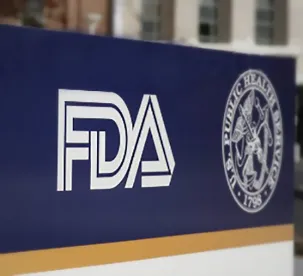On May 4, 2020, the US Food and Drug Administration (FDA) updated its enforcement policy on antibody tests for COVID-19. The revised policy requires developers of commercial antibody tests to submit a request for emergency use authorization (EUA) to FDA. Under the previous policy, commercial test developers could distribute their tests without FDA authorization. The change in policy reflects growing concerns over the reliability of antibody tests currently on the market. The policy shift also suggests that manufacturers of medical supplies subject to relaxed enforcement policies during COVID-19 should monitor policy developments to confirm the regulatory status of their products.
What Does FDA Now Require for COVID-19 Antibody Tests?
Commercial Manufacturers. Manufacturers of commercial tests may develop and distribute serology tests to identify antibodies to SARS-CoV-2 for a reasonable period of time, where the manufacturer: (1) validates the test; (2) notifies FDA of its intent to distribute the test (after validation); (3) submits a request for an EUA within 10 business days of notifying FDA; and (4) includes information in the patient test reports (as described in the enforcement policy) to help patients understand the limitations of the results. The policy provides a new template EUA for manufacturers to use for their submissions.
FDA recommends that the following validation studies be conducted for a SARS-CoV-2 serological assay: (1) cross-reactivity/analytical specificity; (2) class specificity; and (3) a clinical agreement study intended to establish performance characteristics. FDA also recommends that manufacturers establish clinical accuracy on human specimens from patients with confirmed COVID-19 infection.
Notification to FDA (after assay validation) should include manufacturer and distributor information, along with a copy of the instructions for use (IFU), which must include a summary of assay performance. FDA also asks that submissions include test production capacity and the number of laboratories in the U.S. with the platform to run the tests. FDA will acknowledge receipt of the notification and add the manufacturer’s name and test to its list, available on its web site.
FDA expects manufacturers to submit an EUA request within 10 business days after notification to FDA. If an EUA request is not submitted within the timeframe, FDA may remove the manufacturer’s test from the list of notified tests and may take additional actions as appropriate. For tests already on the market under FDA’s prior enforcement policy, FDA states that commercial manufactures should submit their EUA within 10 business days of the publication of the new policy—i.e., by May 18, 2020. Developers should provide their notification to FDA by email here: CDRHEUA-Templates@FDA.HHS.GOV.
CLIA-Certified Laboratories. While FDA encourages laboratories to submit EUA requests for serology tests, FDA does not intend to object to the development and use of laboratory-developed antibody tests. The laboratory must be certified under Clinical Laboratory Improvement Amendments (CLIA) to perform high-complexity testing, and the laboratory must: (1) validate the antibody test; (2) provide notification to FDA; and (3) include information in the test reports as described in the enforcement policy.
If FDA becomes aware of questions or concerns about a laboratory-developed serology test, such as inaccurate results or poor performance, FDA will communicate the concerns to the laboratory and provide an opportunity to address the questions or concerns. FDA intends to remove the laboratory from its listing of notifications and may take additional actions if the concerns are not addressed.
What Changed in the New Policy?
The most significant change is that commercial manufacturers must now submit an EUA request to FDA. Under FDA’s prior policy, published on March 16, 2020, commercial manufacturers were not required to submit an EUA request to FDA. Instead, FDA only required notification (after validation) and certain labeling information.
FDA’s prior policy was based on the considerations that serology tests are not meant to diagnose active SARS-CoV-2 infection and that early availability and use of these tests could help answer critical questions about the prevalence of COVID-19 infections in different communities, whether the presence of antibodies conveys immunity, and, if so, for how long. Since the March 16, 2020, however, FDA reports that it has become aware of a large number of commercial serology tests performing poorly based on an independent evaluation by the NIH. Some commercials tests also made inappropriate claims about diagnostic use or FDA authorization. The revised policy reflects FDA’s decision to increase oversight of these tests.
In addition, since FDA published its March 2020 policy, FDA has developed an “umbrella” EUA for serology tests that are evaluated by the National Institutes of Health’s National Cancer Institute (NIH/NCI). Individual EUA requests have always been permitted; to date FDA has authorized twelve individual EAUs. FDA also now is publishing performance data on authorized serology tests on its website, here.
The revised policy also makes clear that the laboratories performing the tests must be certified to perform moderate to high-complexity tests. In other words, the policy does not permit laboratories running only CLIA-waived tests to run the serology tests. Neither the initial or current policy permits at-home testing.
The information required in test reports is similar to the prior policy, although wording in the suggested phrasing has changed. Manufacturers should review the policy for the exact wording.
What is an Antibody Test? How is it Different than a COVID-19 Diagnostic Test?
Serology tests detect the presence of antibodies in the blood when the body is responding to a specific infection, like COVID-19. Serology tests for COVID-19 identify the antibodies (e.g., IgM, IgG) to SARS-CoV-2 from clinical specimens. The tests detect the body’s immune response to the infection caused by the virus rather than detecting the virus itself. Diagnostic tests, in contrast, detect the presence of the virus itself.
What are the Requirements for COVID-19 Diagnostic Tests?
The policy for COVID-19 diagnostic tests has not changed—emergency use authorization by FDA is required. Under FDA’s enforcement policy, commercial manufacturers may develop and distribute SARS-CoV-2 test kits prior to submitting an EUA request where the manufacturer: (1) has validated the test; (2) provides notification of validation to FDA; (3) provides instructions for use of the test; and (4) posts data about the test’s performance characteristics on the manufacturer’s website. Manufacturers must submit an EUA request to FDA within 15 business days of providing its notification of validation.
To read more about FDA actions to address COVID-19, click here.




 />i
/>i
